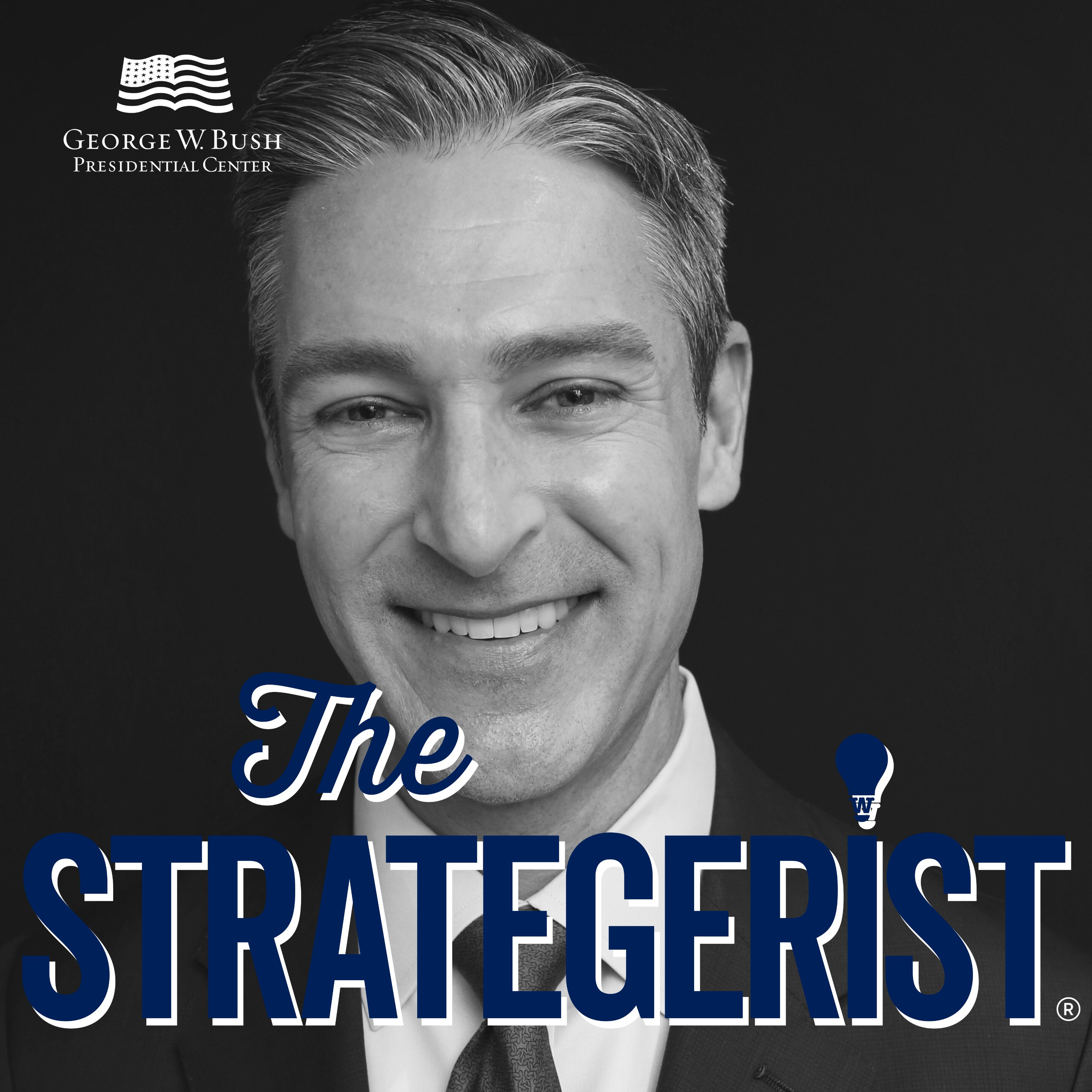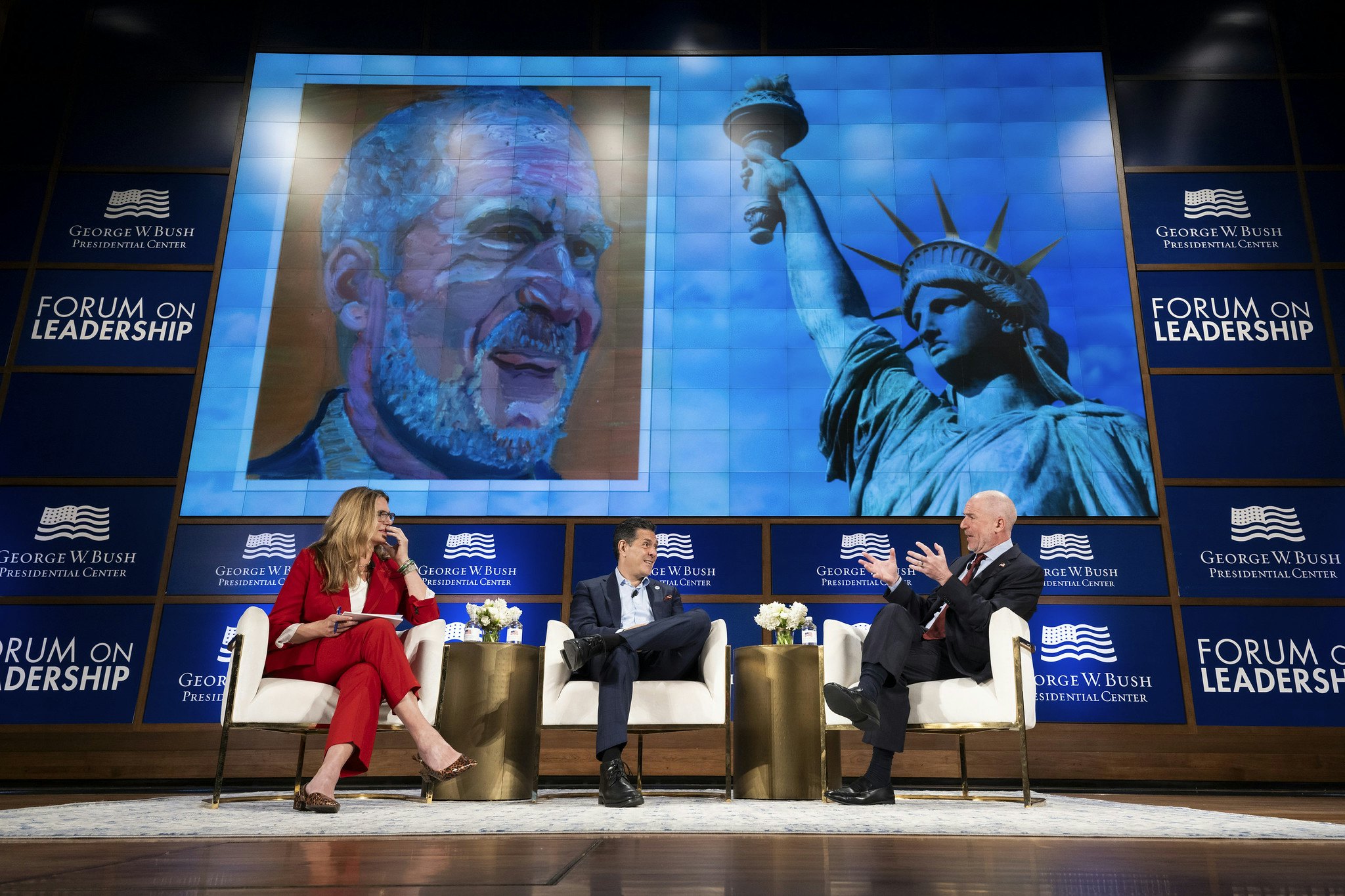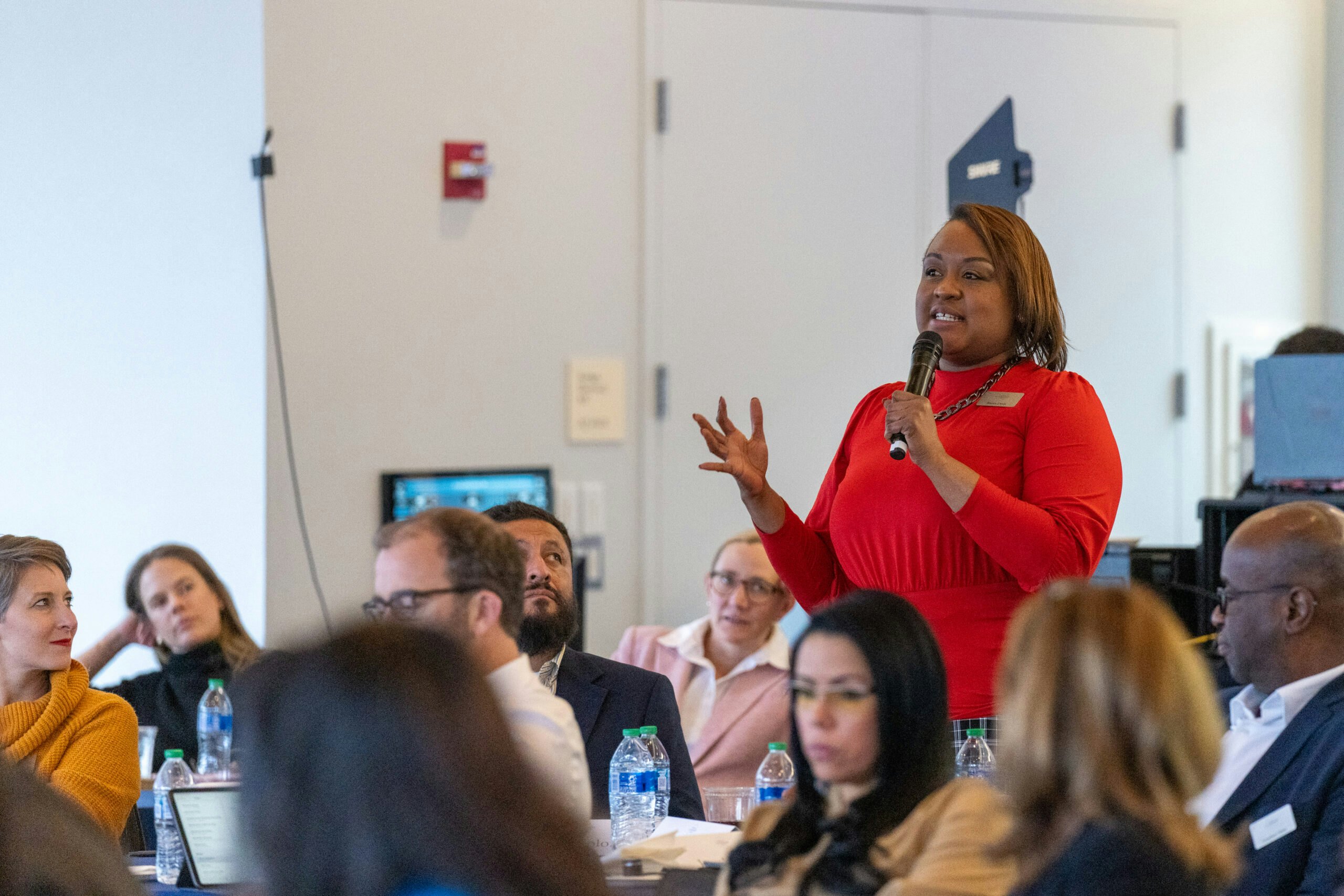Rushan Abbas and Ziba Murat, both of whom are United States citizens, speak about the Chinese government’s treatment of Uyghur Muslims and contend that the United States and other democracies need to uphold religious freedom and human rights as a model for nations to follow as China attempts to expand its reach around the world.
Rushan Abbas is Executive Director of the Campaign for Uyghurs, a Washington, D.C.-based organization protesting the Chinese government’s treatment of Uyghur Muslims. She also is the aunt of Ziba Murat, a Uyghur Muslim whose mother, the retired Dr. Gulshan Abbas, was taken into a Uyghur concentration camp after Rushan Abbas, her sister, spoke out during a 2018 Washington, D.C. conference about the plight of persecuted Uyghurs. Chinese authorities reportedly sentenced Dr. Abbas to 20 years imprisonment in 2019 under the trumped-up charge of aiding terrorism and disrupting the social order. Her sister and daughter continue to bring to the world’s attention China’s incarceration of Uyghur Muslims, including during testimony to the United States Congress.
Rushan Abbas and Ziba Murat, both of whom are United States citizens, spoke about the Chinese government’s treatment of Uyghur Muslims in this conversation with Lindsay Lloyd, the Bradford M. Freeman Director of the Human Freedom Initiative at the George W. Bush Institute, Chris Walsh, Senior Program Manager in the Human Freedom Initiative, and William McKenzie, Senior Editorial Advisor at the Bush Institute. The pair contend that the United States and other democracies need to uphold religious freedom and human rights as a model for nations to follow as China attempts to expand its reach around the world. The accompanying video also describes how the Chinese Communist Party has persecuted them for exercising their rights as American citizens, the impact the lack of religious freedom has had on Uyghur families, and why Ziba Murat is calling upon the Biden administration for help in freeing her mother.
How would you both define religious freedom? What is it?
Abbas: It means the freedom to practice your faith as long as that practice does not harm others. This distinction about practicing faith is extremely important. The Chinese Communist Party (CCP) always claims China has freedom of religion, and the freedom to choose which religion to believe or which not to believe. But that’s only in the constitution. In reality, they don’t respect any of that.
Individual freedom to choose what we believe, how we believe, and why we believe is one of the major achievements of the modern world. Religious freedom defines our sense of liberty and the freedom of conscience that we all take for granted in the United States and other parts of the world.
But this foundation of religious beliefs is coming under attack by the Chinese government. This disturbing trend is clearly visible in the genocide of the Uyghur people.
What has the lack of religious freedom meant for both of you and your family? What has that experience been like?
Murat: I left home at a very young age and was raised in the United States in a modern family. My grandmother was a doctor, and my grandfather was a prominent scholar and scientist. I didn’t have any real chance to learn my religion when I was in school.
Abbas: Even when I was growing up in a family with a father who was a secular scientist, religion has been always a vital part of my ethnic identity. But being born in the middle of the Cultural Revolution, where the CCP attacked Uyghur intellectuals as “counter revolutionaries,” we didn’t have much opportunity to receive any kind of religious education.
Now, the Chinese regime says that anything to do with religion is a threat to the CCP. So, the CCP is cracking down harshly on Uyghur Muslims, but also on Christians, Tibetan Buddhists, and anybody who believes anything other than the Chinese communist ideology. The Chinese government even is going to rewrite the Bible and the Quran to make them compatible with communist atheist ideologies.
These attacks are extremely important to us because our religious identity keeps us who we are.
Tell us more about the Uyghurs and why they are viewed as a threat to the Chinese Communist Party.
Abbas: The Uyghurs have lived in Central Asia for thousands of years and are an important part of the Central Asian culture. The ancient Silk Road basically started in our homeland. The Uyghur kingdom was a prominent center of commerce for more than 2000 years.
But the Manchus invaded our homeland, East Turkistan, in 1876 and renamed the area “Xinjiang.” In Chinese, that means “new territory” or “new border.” The Uyghurs staged numerous uprisings against Chinese rule and twice established the East Turkistan Republic, once in 1933 and again in 1944. We called it East Turkistan because Uyghurs are Turkic people.
But the CCP occupied our homeland in 1949. Now, it is officially part of China. We try not to use the word “Xinjiang” because that’s a colonial name the occupiers gave us.
The Chinese government persecuted Uyghurs in the 1950s for being nationalists and then during the 1960s’ Cultural Revolution for being so-called “counter revolutionaries.” My grandfather and father were persecuted for being prominent intellectuals.
In the 1980s and 1990s, Uyghurs were persecuted for being “separatists” because of their ethnic identity. After the 9/11 tragedy in the United States, China saw another opportunity because we are Muslims. They used the war on terror as a pretext to persecute us.
Today’s genocide is because of Xi Jinping’s signature projects for world domination. China’s Belt and Road Initiative puts our homeland in the epicenter of this important project for China. We are the gateway to Central Asia, Europe, Africa, and the Middle East.
Instead of working with local people, the Chinese government decided this is an ample opportunity to get rid of the Uyghurs for good. China uses its powerful Belt and Road Initiative to keep the nations they have invested in silent. The Uyghurs are facing genocide today, but the world community is silent.
Tell us about the camps in which Uyghur Muslims are being detained. What happens there?
Murat: These re-education camps pick up Uyghurs and tell them they are going to educate them and teach them Chinese to get them a better job. But we hear from camp survivors that the camps are basically a brainwashing facility that teaches the Communist Party ideology, and that horrible things are happening inside them. When I think about the conditions of these camps and what’s happening in them, I can’t imagine my mom being in one of these places.
Abbas: Inmates are being released only because they carry other countries’ passports. They report firsthand, as Ziba mentioned, that detainees go through brainwashing and intense indoctrination. They also are forced to forsake their religion and ethnic identity. And they’re subject to mental and physical torture, like systematic mass rape. They are being forced to take unknown medications. And they are being subjected to food and sleep deprivations. They often suffer from dehydration.
When I think about the conditions of these camps and what’s happening in them, I can’t imagine my mom being in one of these places.’
– Ziba Murat
We are told that many people are dying and that crematories are being built next to the concentration camps. Even people living so-called normal lives outside of the camps are subject to the ultra-nationalistic racism and cutting-edge technology that the authorities are using to control the Uyghur people. Everybody’s subject to cameras on every corner and facial recognition software that scans your iris. There are GPS tracking devices on every vehicle, as well as QR scanning codes on everybody’s home.
More than 900,000 Uyghur children have been abducted from their families and taken into state-run orphanages. And Uyghur women are forced to marry Han Chinese people. If they refuse a forced marriage to Han Chinese men, whom the government gives a job, housing, and money to marry Uyghur women and girls, the women will be taken to those concentration camps. They will be labeled as Islamic extremists who didn’t want to marry non-Muslim Han Chinese.
That’s the reality for the Uyghur people today, inside and outside of the camps.
Who’s in these camps? Men? Women? Children?
Abbas: Anybody. There are people 80, 85 years old, who have been taken to the camps and died there. There are religious scholars, university professors, university presidents, doctors, famous athletes, famous pop star singers, and successful business people.
The Chinese government claims that the camps are for vocational training and re-education and that they give them skills so they can get jobs. But young university students, or the people who are 70, 80 years old, or retired professors, what kind of job skills do they need and to get what kinds of jobs? It’s just an excuse. Those camps are forced labor facilities because the Uyghurs are being subject to work as slaves in them as well.
Other majority Muslim nations generally have not spoken out about what’s been happening. They have not condemned the actions of the Communist Party. Why is that?
Abbas: There are three reasons. One is that the Muslim community is being targeted with China’s disinformation campaign and false narratives. They don’t really know what’s happening to Uyghur Muslims. While China’s waging war on religion, and basically eradicating Islam, they are building the second-largest mosque in Nigeria. They organized an Islam-in-China conference in Malaysia and Indonesia, inviting Islamic scholars and telling how the Muslims have such great freedom to exercise their religious freedom in China.
The second reason is that the systems in those Muslim-majority countries are like totalitarian regimes. They don’t give their people freedom to go on social media to read about what is happening and they are not publishing reports about the Uyghurs in the mainstream media.
The third reason is that the rulers of those Muslim-majority countries don’t want their people to find out because they have business interests with China. The Chinese are basically buying their silence with these trade deals and the money.
How should democracies like the United States respond to this repression?
Abbas: What the Chinese government is doing is not just about the Uyghur people’s future anymore. It’s about the conscience of the world. They are basically waging of war on human dignity and on freedom and democracy.
This is an extremely important issue. Standing up for the Uyghurs should remain a critical part of America’s foreign policy as it’s tied to broader human rights concerns. It’s not just about saving the Uyghurs but saving the world’s future. What the Chinese government is doing to Uyghur people today is what they have pictured for the world community. So, the United States and other major democracies should uphold the value of religious freedom and human dignity. We need to fight this evil with compassion, courage, and conviction.
What the Chinese government is doing is not just about the Uyghur people’s future anymore. It’s about the conscience of the world. They are basically waging of war on human dignity and on freedom and democracy.’
– Rushan Abbas
Why do you think there is a relationship between the promotion of religious freedom and the promotion of human rights?
Abbas: If we cannot choose what we believe about the existence of God, about right and wrong, and about how to follow the truth, then no other rights will be respected. When we promote human rights, we are preserving human dignity. But when totalitarian and authoritarian governments place themselves as the ultimate authority in people’s lives, and deny religious rights, no basic rights will survive.
Let me wrap up with this question: To what extent do you think that challenges to religious freedom stem from authoritarian leaders fearing their people will give allegiance to something greater than the leaders themselves?
Abbas: That’s what scares authoritarian leaders, especially communist leaders. For them, the communist atheist ideology is above everything. The rulers fear they cannot control people if the people believe anything else but the communist ideology. It’s not that they so much fear religious people. It’s that they see as a threat any set of beliefs other than those of the Communist Party.

























